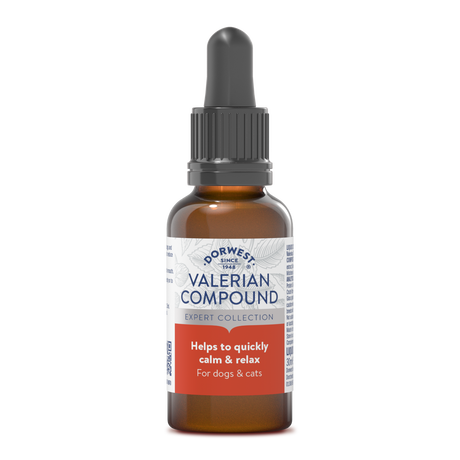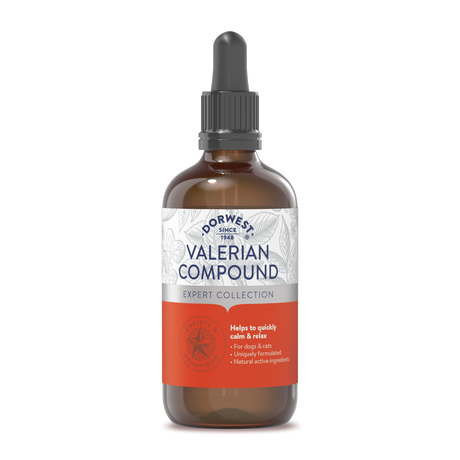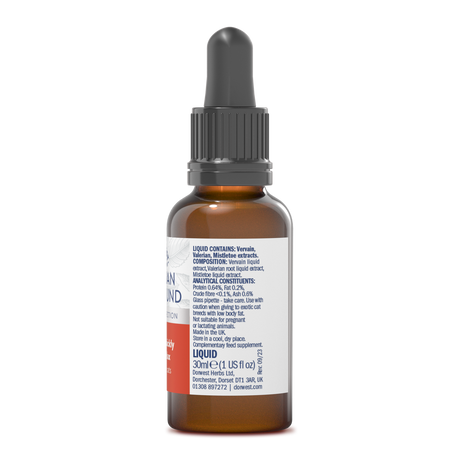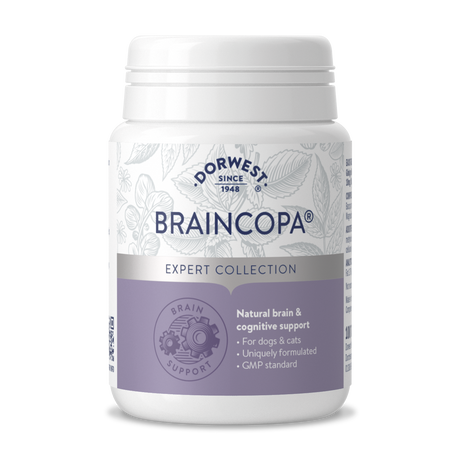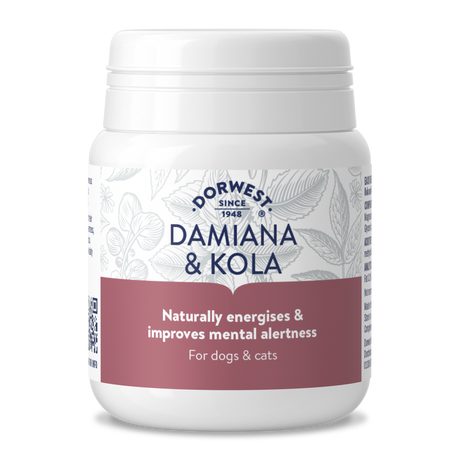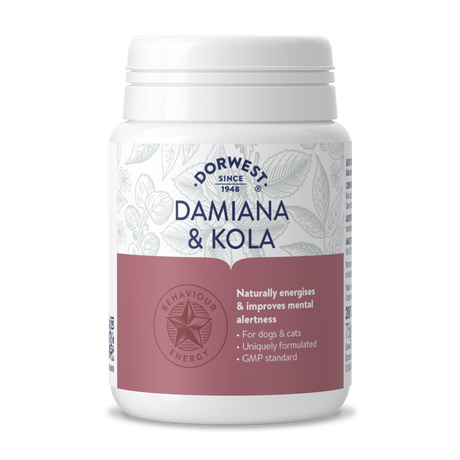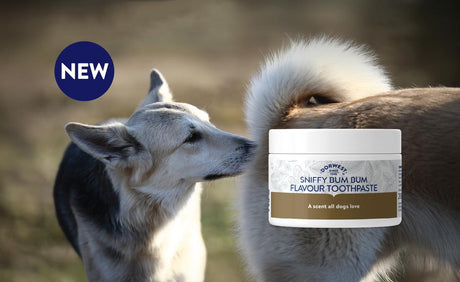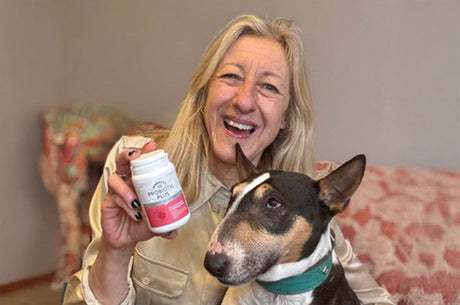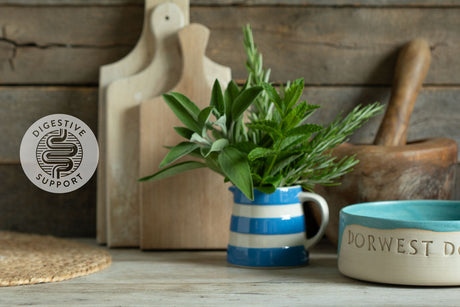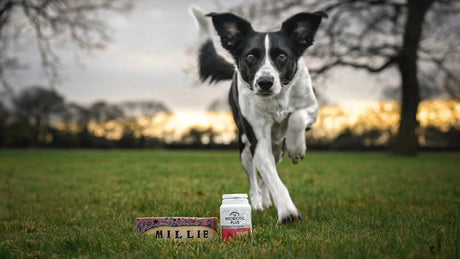Anxiety impacts many of our lives, including our dogs. So how can you support your dog’s anxiety? Here are some of our top tips to help you support your dog's anxiety, from recognising the signs of stress to understanding why they feel this way. We also recommend using our natural calming supplements, great for both dogs and cats, to help your four-legged friend keep their anxiety at bay!
5 signs of an anxious dog
1. Whining and Barking:
Dogs use their voices to communicate, just like we do. While some verbal communication might be normal, if your dog changes how they usually use their vocals, it's possible they may be suffering from dog anxiety. Most of the time, neighbours will let you know if your dog is barking or whimpering a lot. Alternatively, the use of pet cameras are increasingly popular, so you can monitor your dog in your absence if you're unsure.
2. Excessive panting:
Some panting is normal, for example during very warm weather or after a good run. But if you notice panting in situations where you wouldn't expect them to, it can be a sign of stress or anxiety in dogs. Some telltale signs to look out for are; do they start panting in social situations? In the car? Have they started panting in situations they've previously found ok?
3. Pacing:
Have you ever taken a difficult phone call and noticed you're pacing up and down the room? This may be because you're stressed. Dogs can also pace up and down when feeling stressed. If they're unable to settle and relax, it can be a good indicator of dog anxiety. Before entering a potentially difficult situation, you can consider anxiety tablets for dogs, which may limit pacing. Be sure to only use products that are natural calming remedies for dogs, as the last thing you want is to sedate them.
4. Body Language:
Your dog's body language can tell you a lot about their levels of anxiety. Common signs include tucking their tails underneath or cowering to make themselves smaller. Keeping your eyes open for subtle signs can be helpful to spot a dog’s anxiety levels.
5. Changes to usual behaviours:
Things like a lack of interest in their food, changes to usual bowel movements and excessive licking are signs of dog anxiety. However, so are becoming withdrawn, causing destruction or even showing signs of aggression. As with the above, understanding what is normal for your dog can be a helpful benchmark.Whilst the above can be signs of stress and anxiety in dogs, they could also indicate other health issues. We'd always recommend consulting your veterinary professional to be certain when considering natural calming remedies for dogs.
6 reasons why your dog may be anxious
1. Noise Phobia:
This is one of the main reasons dog owners often contact us each and every year. As dogs have such sensitive hearing, events like firework displays can be an unwelcome sight and sound. The result? A usually happy go-lucky dog can become a shell of their usual self. Thankfully, there is a lot you can do to support your dog's anxiety. First, creating an environment where they feel safe e.g blankets to burrow under, access to water, some Classic FM to cancel out some of the noise. As we discuss later, our Scullcap and Valerian Tablets can be particularly helpful when dealing with noise. These are our best selling anxiety tablets for dogs used by pet parents worldwide.
Take a look at our helpful blog post on taking the stress out of fireworks season. Here you’ll read more tips for fireworks night and dog anxiety.
2. Separation Anxiety:
Dogs love our company as much as we love theirs, so it's unsurprising so many dogs struggle with this issue. It may be particularly true for those born or adopted during the pandemic. It’s likely they've been surrounded by their human for the vast majority of their life. When their pet parent returns to work, it can be a big adjustment. Separation anxiety can also impact dogs of all ages and at any time in their life. For example, a usually relaxed dog may find separation harder as they get older or due to a recent event.
Helping your dog feel safe in their environment can be a great place to start. Leaving them for short periods, even when you're in the house, will help them realise you're always coming home. Taking them for a decent walk before you leave is also helpful as they're more likely to feel tired and might be keen to rest afterwards.
3. Historical Negative Experiences:
As with humans, some dogs sadly experience some trauma in their life. For example, they may have been attacked by another dog during a walk or they may have been abused by a former owner. Their life story can be an important factor leading to their anxiety issues. This can be prevalent if you decide to adopt a dog. Being patient, calm, and working alongside a trained behaviourist can be very helpful in situations like this.
If there are situations that repeatedly trigger their dog anxiety, then it may be worth trying herbal remedies for dog anxiety. The great thing about these dog supplements is that they are completely natural calming remedies for dogs and free from harmful chemicals. As a result, you can help your dog feel at ease without causing any drowsiness.
4. Travel Anxiety:
With staycations becoming more popular, many of us wish to bring our dogs with us. While driving with your dog may be a great adventure for some, others may find the experience overwhelming. In particular when it comes to experiencing car journeys. All trips have the potential to cause dog anxiety, from short trips for walkies, to travelling for hours to a holiday home. Building up car journeys gradually are highly recommended. Couple this with scheduling regular loo breaks and some good exercise before, so they can try to relax during the journey. You can find further tips on using dog supplements to help when travelling with your pet by reading one of our older blogs.
5. New or Unusual Experiences:
From parties with lots of people to moving house or changing your dog's daily routine - all of these are common causes of a dog’s anxiety. Whenever you're making changes that will impact your dog's life, try to do so bit by bit. For example, you might be starting a new job or starting a family. Being mindful of how changes in your life can impact your dog is also important. Sometimes we can forget our actions have the ability to cause a ripple effect with our four-legged friends.
6. Boredom:
Excessive boredom can lead to dog anxiety. For example, if they don't have access to regular exercise or attention. All dogs should have their basic needs met, which include both of these points. If you know you need to be out of the house for longer than usual, ask a trusted friend or family member to spend time with your dog. (Always ensure your dog knows and likes them before doing so). Keeping their mind and body engaged can help minimise the chances of boredom which could lead to destructive behaviours.
How to support your dog’s anxiety with herbals
As well as the tips above, many pet parents also choose to use our herbal remedies for dog anxiety to provide additional support for their pets. Our Scullcap and Valerian Tablets work well to help minimise anxiety in a variety of settings. For noise phobic dogs during firework season to those stressed by travel, separation anxiety, and many more reasons aside.
Commencing these at least a month before a known event or change in routine helps to ensure our calming tablets for dogs work their magic. They work naturally to reduce your dog's anxiety without causing any drowsiness.
Many people also like to use our Valerian Compound for dogs which becomes effective within 30 minutes. This can be ideal for unexpected sources of dog anxiety, due to its fast-working nature. It can also be used in conjunction with our Scullcap & Valerian Tablets For Dogs to provide additional support for stressed pets. As with the tablets, this works by helping to naturally relax your dog.
Would you like to know more on why herbals are a good choice for noise anxiety in dogs? Have a read of our recent blog post from Vet Holly, who outlines why herbal dog supplements can be useful to tackle anxiety.
Feel ready to tackle your dog's anxiety?
By increasing general anxiety awareness, along with our tips, we hope you now feel well prepared to support your dog’s anxiety. Remember, our friendly team are available to speak to if you have any questions about how our dog supplements and herbal remedies for dog anxiety can support your anxious dog. Browse our full range of anxiety tablets for dogs and natural calming remedies for dogs online.
We'd also love to hear if any of the above has helped your pet. Let us know via email or our social media accounts - we love to hear from you! Contact us today by emailing info@dorwest.com or calling +44 (0) 1308 897 272.






